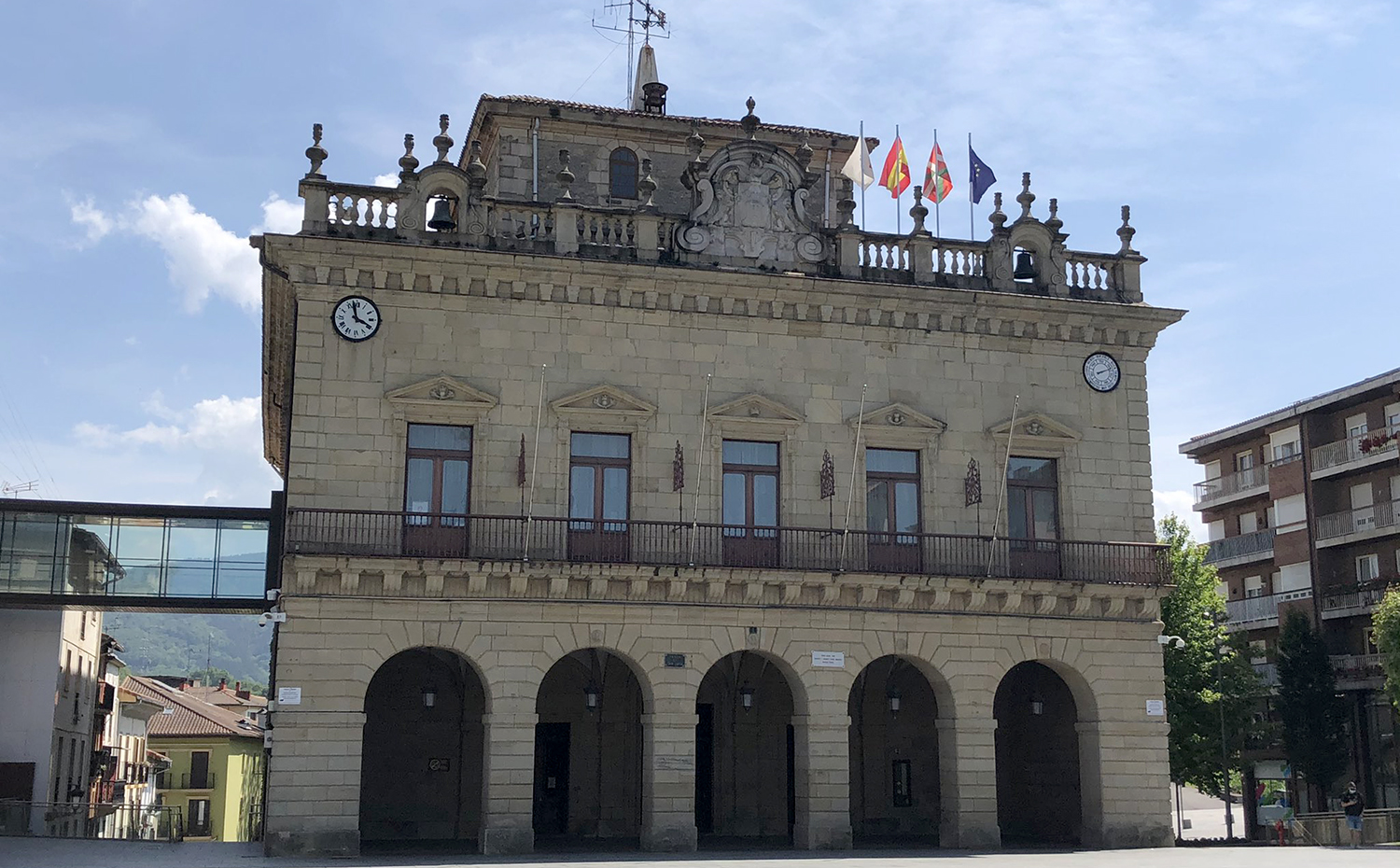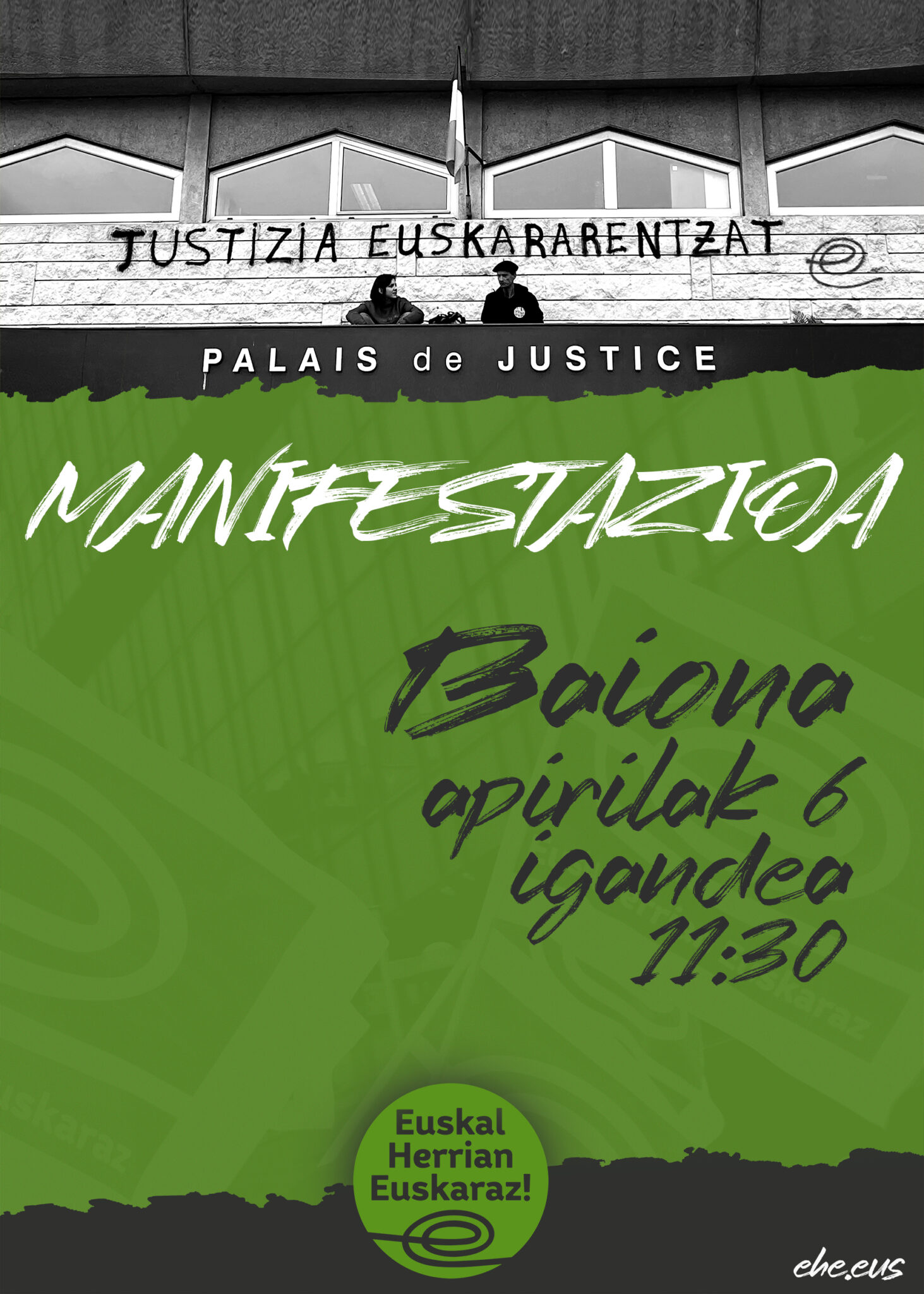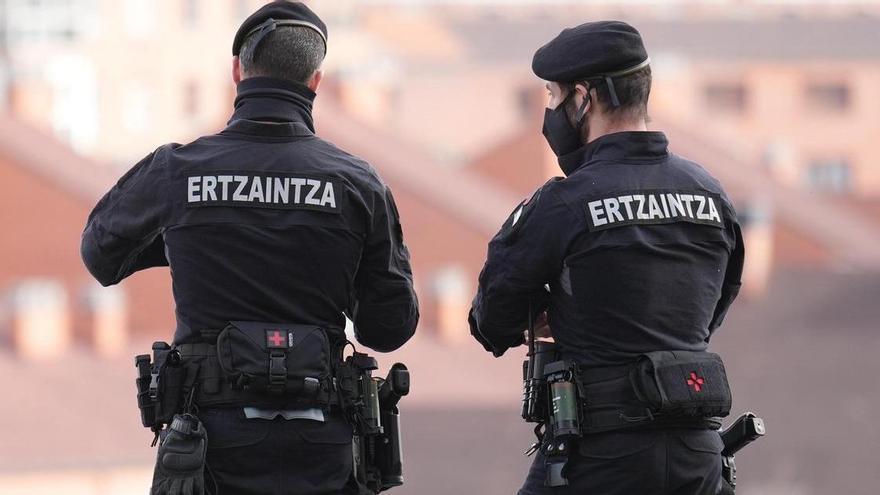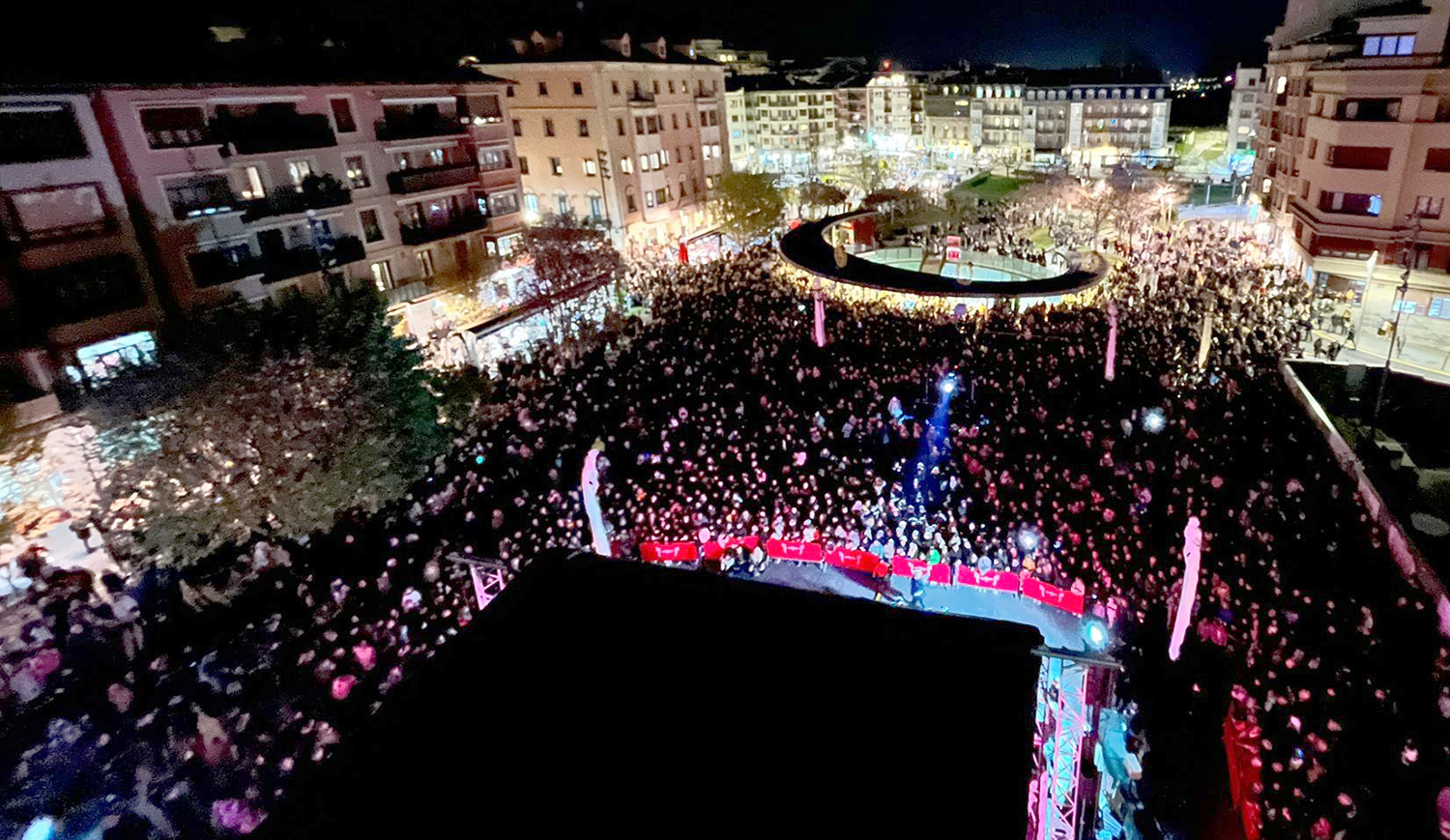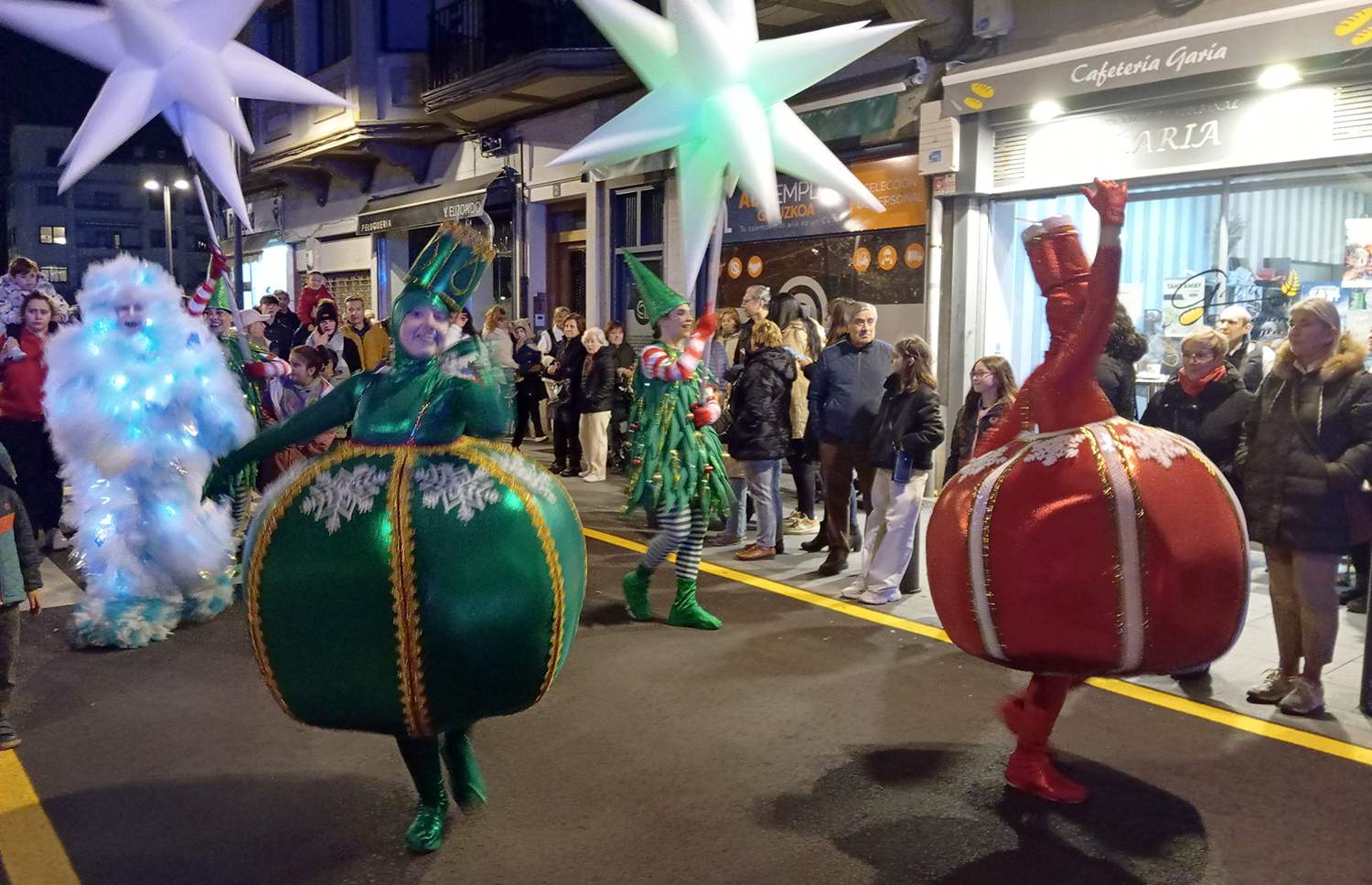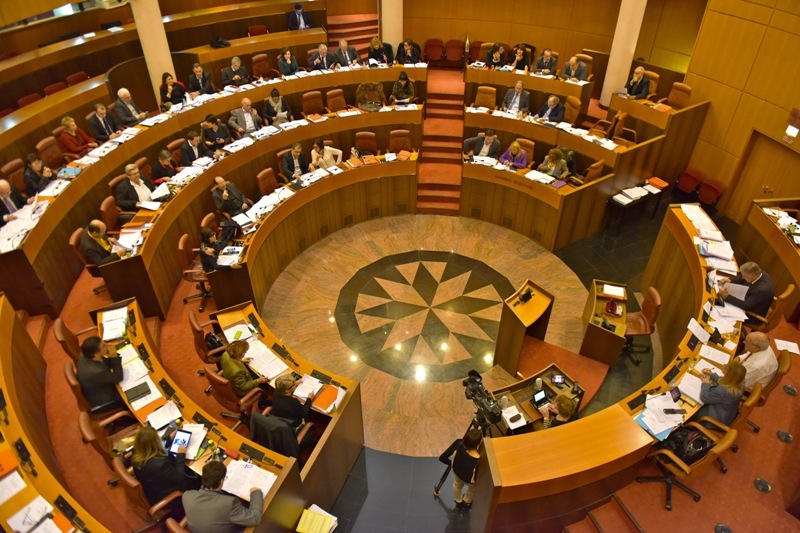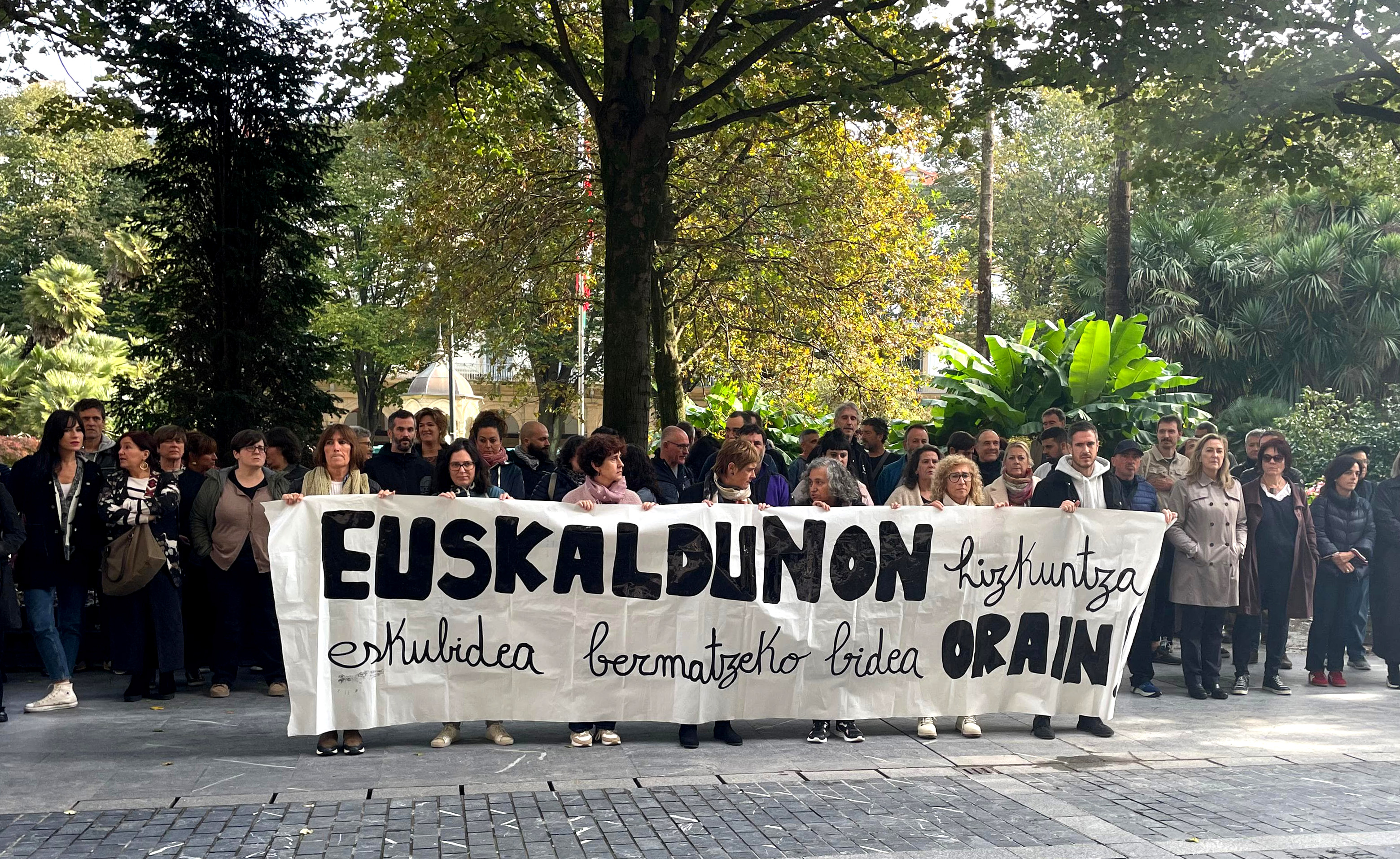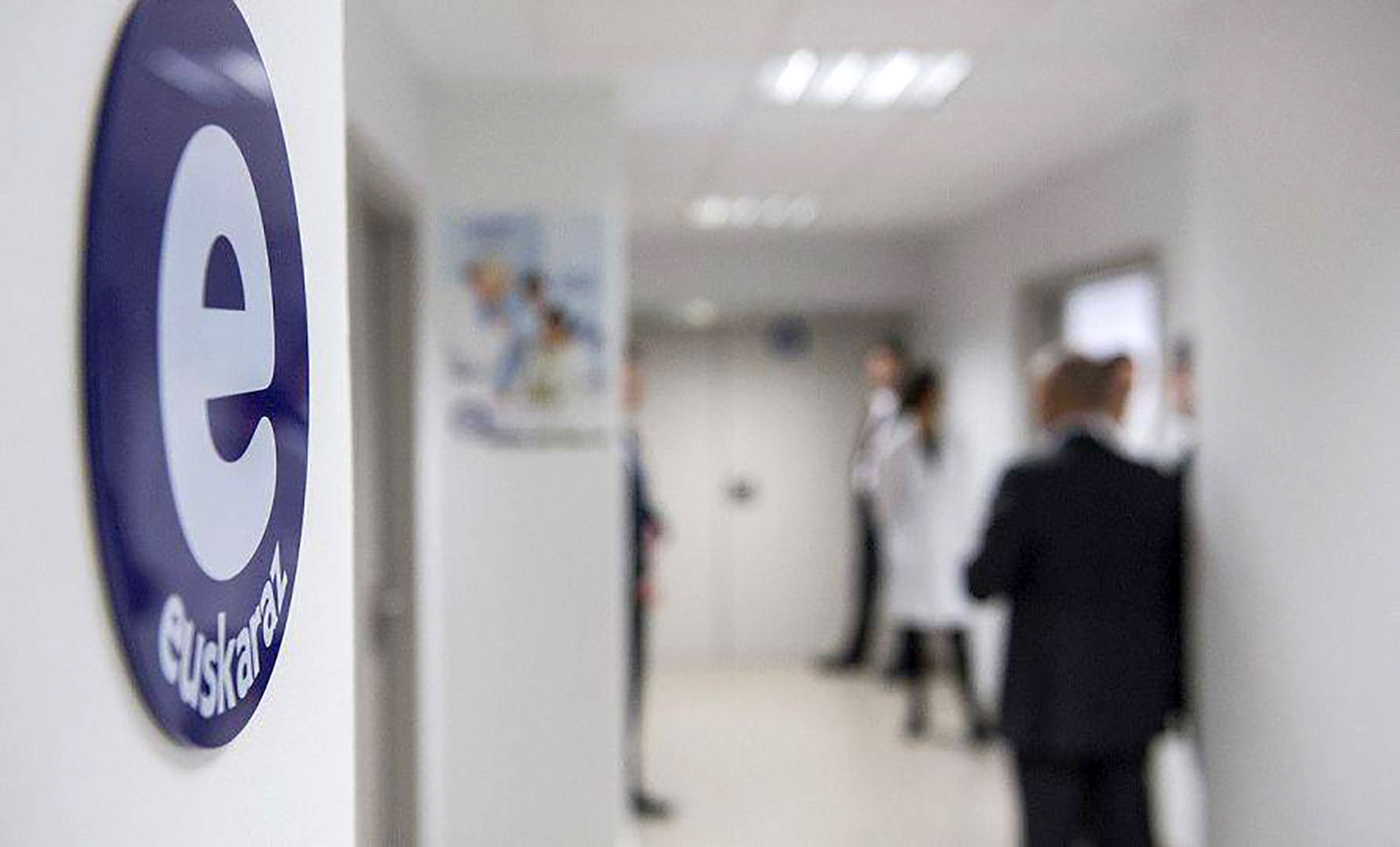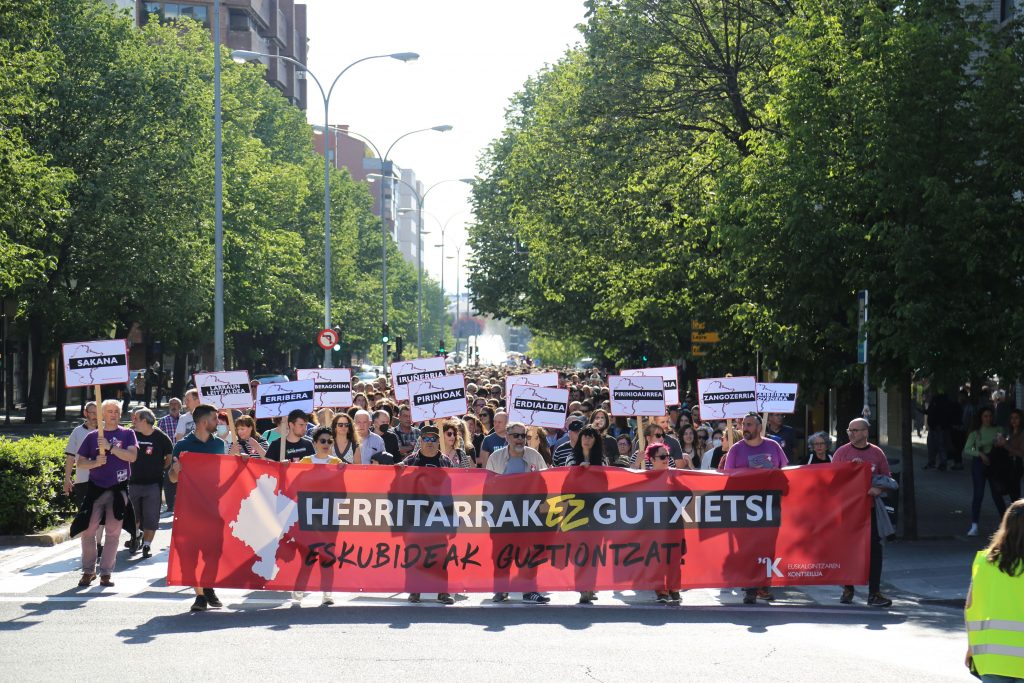Travel to see ‘Nora’ in Basque
- 1 September Film director Lara Izagirre has written to me to propose an interview with Nora at the premiere of her second film. “I wanted to talk to you [with Pikara Magazine] about what it means to make a Basque film with a woman,” she said. Yes, of course. First step, watch the movie.

3 September
I have proposed to the members of Berbalagun feminist that they go to the movies together. So far, the only activity of this bilbaíno group has been to meet on Mondays in the Bira culture hall. Therefore, they found it a good plan to start the new course. In addition, most of us have not stepped into a movie theater since the beginning of the pandemic. We have seen that in Bilbao it is offered in two cinemas Nora: Golem ALHONDIGA and Multicines. We have agreed to go to the second. It is a small, historic and quite alternative room, where you can find the films in their original version.
9 September
The day has come and we have a lot to celebrate: “I think I’ve passed the C1 exam,” writes our colleague Veronika. While searching for a parking lot, Marga sent us a photo of the movie poster: on top, in serious words, we were excited to see the word CASTELLANO. I suddenly remember that Lara Izagirre told me that they have produced a version folded into Spanish for dissemination in Spain. It does not occur to me that the small, historical and cinematographic alternative of Bilbao chose that version. Marga has reassured us, as the clerk of the box office has made it clear to him that this is a multilingual film, that there will be fragments in Basque, also in Spanish, English and French. Ainhoa has launched a hypothesis: there will be subtitles in Spanish.
The movie has started. Ane Pikaza (Nora) and Héctor Alterio (her aitite) converse in Spanish, since, as is normal, it is from Argentina. Nora then goes to a bar and continues to speak in Spanish with Kepa Errasti, the tabernacle that has performed the work. What a weird thing! Lips and sounds don't match. Wow! We're seeing the duplicate version.
Among my virtues is not the ability to cope with frustration. I've told Ainhoa that I'm not willing to watch a film produced in Euskera in Euskal Herria folded into Spanish, unless it's in a Bilbao movie. We have left the room four people and we have gone to take a boat; two others have stayed inside, including Marga. When he leaves, he tells us that he liked the film so much, that he wants to see it again: in Basque, of course. On the contrary, our partner who always bears the kiss of Euskaraldia complained to the office clerk.
Upon arriving home, Marga sent a photo to the whatsapp group to show that in the show section of Berria, in the list of Muticines, Nora appears in bold, without any other comments. Then I have seen the same trend in some newspapers: in the rooms where the original film is broadcast there has been “Nora (VOSE/JBA)”, but when it comes to a folded version there is no parenthesis. “They have made it a normal and foreign language,” Encarni replied. Ainhoa highlights that the treatment of Spanish films is very different: “To every train. Destination Asturias [another film on the list] will also be VOSE? The dominance of the language in the Basque Country is clear”.
10 September
Marga sent us a link from change.org: “We want to watch the NORA film in Basque at Getxo Zinemak.” Our colleague adds: “Good morning! As you see, the “case” has not been just our own. I’ve already started moving the account and we’re going to join forces to do something with each other.” The situation is not new, Urtzi Urkizu, a journalist from Berria, has criticised on Twitter the Spanish dubbing of the films Handia and Errementari.
Naia has been “in favor of direct action”: “A general plante at the beginning of the film or…”. In Basauri, he has also been offered in Spanish and a friend of Euskaltzaindia has informed him of his intention to speak with the Basque department.
Marga sent us another link tonight: “A group of Euskaltzales has denounced in Bilbao that the Basque film Nora had to be seen in Spanish.” “This team is us,” he proudly explains. The news of Uriola.eus has also been broadcast by ARGIA. It has taken further steps in the coming days: Elebide has sent a complaint to the Basque Government’s Linguistic Rights Guarantee Service and is in contact with the Deusto Association to send it also to the Observatory. María Luisa shared with us more arguments: that cinemas should protect Basque cinema and respect its format, for the sake of linguistic diversity, even more so in the case of cinemas that have long been betting on it.
12 September
“Supports for Basque film” is the column that Eider Goenaga Lizaso has published in Berria. One sentence is highlighted: “[In order to move forward, in addition to subsidies and industry involvement] there is a need for public.” The author proposes to offer films on all media: cinema, television, youtube, pay platforms…
13 September
More voices have strengthened the debate. In Deia, in the column Translation to the Basque Country, Ane Araluzea celebrated that the film Nora was made entirely in Basque, with all the journalists who attended the presentation in Bilbao. He then announced the collection of signatures and made two readings of the commercial decision of the cinemas: “On the one hand, it is not worth supporting with public money the production of films in Euskera if private companies give up this support by denying the possibility of seeing the works in their original language. And, on the other hand, the reluctance to see the audio-visual in its original version does not promote the bilingualism that we still need.”
Bea, my Spanish-speaking companion, came to my memory. In the group of parents of their Whatsapp children's school, it is almost always done in Spanish. Two women have spoken briefly in Basque and another mother has asked them to do so in Spanish, “for empathy and respect for those who do not know Basque”. Despite being a Castilian speaker, Bea has been able to clearly identify the violence that has occurred in this occurrence. Responds: “Although I do not make Basque, my criticism is that it is impossible to learn Basque if people do not speak Basque. Let them speak in Basque and I settle them.” That day, my almost 38 year old friend decided to enroll in the Basque Country and, with the help of the neural translator, to participate in whatsapp groups in the Basque country.
Marga sends a message: “On Friday 10, in Getxo’s car they shot the film in Basque and before the beginning of the film Izaro offered a concert!”
14 September
We've gone back to the movies, to Golem Alhondia, thanking Lara Izagirre, who has won invitations. We have enjoyed the charm of the film: history, landscapes, music and the Basque actors. In any case, we have been left with many questions relating to the subject of dubbing. What conflict, pressure or desire determine the decision to double? Why have some Basque films been duplicated and others not? Does the fact that the author and the team leaders are women influence these negotiations in any way? What can public institutions that support Basque cinema do (or can be asked to do) to change that trend? My luck, because being a journalist gives me the opportunity to ask these questions to the director.
The critic has defined the film Nora as a feel-road movie sentimental movie. To see ourselves in Basque, we had to immerse ourselves in the activist road movie, which has made us more aware of linguistic oppression. That is the positive side of this story: on our journey for the normalization of the Basque Country, we have taken new steps together.
Gabonetako argiak pizteko ekitaldia espainolez egin izanak, Irungo euskaldunak haserretzeaz harago, Aski Da! mugimendua abiatu zuen: herriko 40 elkarteren indarrak batuta, Irungo udal gobernuarekin bildu dira orain, alkatea eta Euskara zinegotzia tarteko, herriko eragileak... [+]
The Council of Euskalgintza is warning of the linguistic emergency we have been experiencing in recent weeks. Several years have passed since the beginning of describing the situation of the process of revitalization of the Basque country at the crossing, at the roundabout, at... [+]
Korsikako legebiltzarkideek ezin dute Korsikako Asanblean korsikeraz hitz egin, Bastiako Auzitegiaren 2023ko epai baten arabera. Ebazpen horri helegitea jarri zion Asanbleak, baina debekua berretsi du orain auzitegi berak. Epaiak tokiko beste hizkuntzei eragiten diela ohartarazi... [+]








